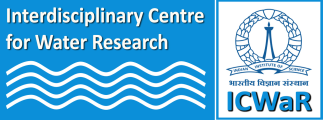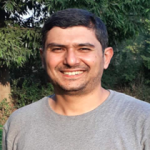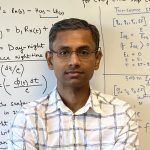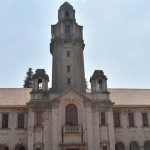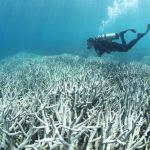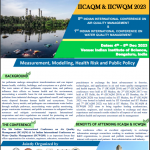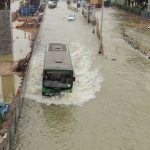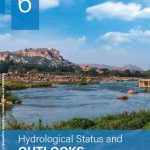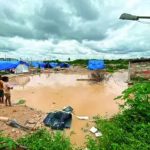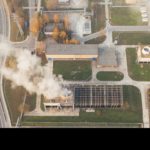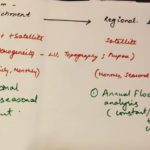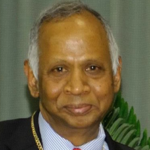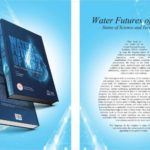Management of soil-water pollution using in-situ remediation and advanced monitoring methods
Name of the Speaker: Prof. Brijesh Kumar Yadav
Title of the Seminar: Management of soil-water pollution using in-situ remediation and advanced monitoring methods
Date and Time: 15th March 2024 (Friday), 04:00 pm
Online Platform: MS Teams (link to the video of the seminar)
About the Speaker: Prof. Brijesh K Yadav is the Head of the Hydrology Department at the Indian Institute of Hydrology (IIT) Roorkee, and a Joint Faculty at the International Centre of Excellence for Dams (ICED), IIT Roorkee. He holds an MTech in Water Resources from IIT Delhi and completed his PhD from IIT Delhi and UNESCO-IHE Delft in 2008. Prof. Yadav has been honored with the ‘Ramanujan Fellow’ award by the Government of India and has received postdoctoral fellowships from the University of California Davis (USA) and Utrecht University (Netherlands). His research focuses on groundwater management, flow and solute transport through the subsurface, phytoremediation, and bioremediation of polluted sites, managed aquifer recharge, seawater intrusion, and CO2 geo-sequestration. He has published over 80 peer-reviewed journal and book articles and presented at more than 60 national and international gatherings.
Prof. Yadav is the Secretary General and Fellow of the Association of Global Groundwater Scientists (AGGS) and serves on editorial boards, as an associate editor, and editor of five reputed journals. He has mentored postdoctoral researchers and fellows, supervised PhD scholars and MTech dissertations, and managed international and national research/consultancy projects. Prof. Yadav has organized international conferences, symposiums, and workshops, including the International Groundwater Conferences and the Roorkee Water Conclave. He has also coordinated numerous training courses/workshops and received recognition as an outstanding PG teacher at IIT Roorkee. Additionally, he chairs the “Expert Committee on Groundwater” of Sikkim and has served on various technical committees related to soil-water resources management.
Abstract: Soil-water pollution from hydrocarbons and heavy metals, caused by both human activities and natural sources, is a growing concern. Efficient remediation techniques and monitoring systems are required to address this issue. In-situ remediation techniques offer a more sustainable and economical solution by treating a mixture of contaminants directly in place. This talk discusses the principles and applications of in-situ bioremediation methods and Permeable Reactive Barriers (PRBs), along with advanced monitoring methods. Engineered bioremediation techniques were studied for land sites polluted with hydrocarbons, and an in-situ PRB system was used to treat groundwater polluted with arsenic, as demonstrated through practical experiments. A comparative assessment of various bioremediation techniques (such as Biostimulation, bioaugmentation, phytoremediation, and natural biodegradation) was conducted to evaluate their biodegradation rate, lag phase duration, and total degradation time for hydrocarbons. These treatment techniques were then applied in the field to improve the soil and water quality of problematic sites in India. Similarly, in-situ remediation of arsenic-contaminated groundwater was investigated using a well-integrated PRB system. The findings of this research can enhance the practical application of novel, well-integrated PRB systems along with these composites for arsenic remediation. The importance of bio-monitoring, along with conventional physico-chemical monitoring techniques, is discussed in last for the better management of polluted sites. Overall, implementing in-situ remediation with cutting-edge monitoring techniques is a viable strategy for controlling (sub)-surface water and soil contamination, providing long-term solutions that protect public health and the environment.
Key Words: Soil and Groundwater pollution, In-situ remediation, Bio-monitoring, Sustainable remediation strategies
Date/Time
Date(s) - 15/03/2024
4:00 pm - 5:00 pm
